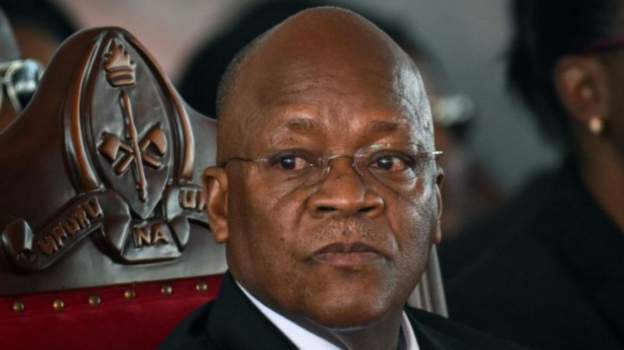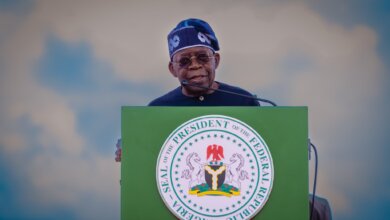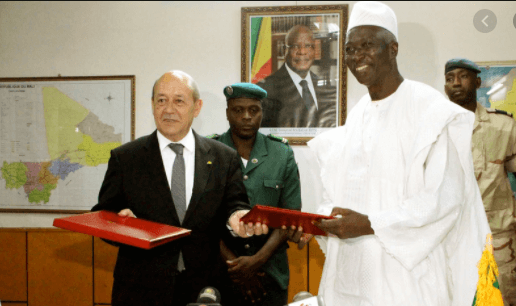We saw him coming with the truth, and yet President Magafuli is now gone

Africa needs African leaders who will believe in the skies; soils—the deserts; the mountains; rivers and lakes; forests and jungles of Africa too and most of all, she needs leaders who believe in her people—leaders with a far-reaching vision aspiration to make Africa truly independent and self-sufficient.
“But any revolutionary-minded African leader will require to invest heavily in political education—formal and informal—in order to anchor the revolutionary ideas in the people as there lays the safest depository of such ideas,” said Mr. Morufu Adeoye Oseni, the Secretary-General of State 55, adding that, in the recent history of Africa, Africa had not seen an African leader so revered to the extent that Magufuli was in Tanzanian and around Africa.

And Sikwindi Situla, the President of State 55 said that there was a thin yet profound mismatch between what constitutes African democracy and democracy as an untenable—unrealistic ideal and a mere foreign policy statement and diplomatic tool of the US to keep developing countries disjointed, poor and disposed of by predatory interests.
Read also: State 55 Afrika on the Coronavirus (Covid-19) to Afrika
State 55 is Afrika’s premier people’s pan-Afrikanist movement operating for the full liberation of Afrika employing complete integration, decolonization, and the claim for reparations in respect to economic plunder, racial segregation, colonialism, and slavery.
According to the President of State 55 in an interview with TheAfricanDream.net, “The United States government and allies themselves do not practice this democracy they insist of Africa—something ingenious, the government of the people by the people for the people, have never been satisfied in practice by the proposing nations that boast of democracy” said Mr. Situla.
The President disclosed that to TheAfricanDream.net that “…the idea of democracy as a governance tool with which the people order their nations into codes must obtain its natural ethos from cultural constructs for good rule; free press; unbowed opposition; respect for fundamental rights and; the need for leaders to respect constitutions.”
When leaders sincerely engage the led and follow-up with a leadership style that is devoid of much appeasement and anchored on long-term strategic goals, a country can easily transform its governance structures and socio-economic outlook away from highly fanciful and unrealistic promises to modest but achievable commitments and that is what Magufuli was doing belives State 55. There must be a magical elixir in strong leadership and that is how the autocratic regime of Singapore’s Lee Kuan Yew delivered a stunning economic success, against the democratic rhetoric in Indonesia after Suharto and in the Philippines after Marcos, where even more economic uncertainty was visible.
“Overly democratized nations can destroy national leadership and virtually create a free fall of the economy. Insecure leaders are bound to make more mistakes than strong and astute ones. At some point Democracy in Indonesia was unable to ensure both stability and certainty for its economy, thereby losing the required considerations for foreign investors including indigenous capitalists—thanks to commonplace street riots in Jakarta and the ethnic massacres throughout the rural districts. In fact, it was exactly because of the instability in Indonesia, that many investors—in panic—moved their money to banks in neighboring Singapore,” said Situla.
Whereas in one country they cannot predict the political and economic climates each day brings, investors and business-minded entities knew the other had remained stable and its laws unchanged for decades, the natural choice was therefore obvious. On the other hand countries in Asia such as Japan, South Korea, Singapore, and Israel in the Middle East, had even more spectacular growth trajectories on account of special conditions and idiosyncrasies that Malaysia did not quite have.
Malaysia did not benefit from large foreign-aid programs and did not have a manufacturing sector before World War II, neither did they have a strong institutional framework in comparison to Japan and Germany, which, though ravaged during the war, had a strong legacy to build on.
On the contrary, Malaysia had many of the problems that today’s developing economies are grappling with. The country is ethnically diverse, and the Malay society was very unequal. Its colonial past fostered reactionary policies. It had a communist movement that could have tipped the country onto the perilous paths of Vietnam or North Korea.
Therefore to substantially reduce the income gap between the poorer Bumiputera (the indigenous Malay) and the wealthier Chinese and Indian minorities, Malaysia came up with an affirmative action. It also embarked on an export-led industrialization program through Foreign Direct Investment—without falling into the trap of becoming a single-sector economy. As a result mining, agriculture, industry, and services, all became important parts of the economy.
Public investment in education and technology, as well as the tendency of successive governments to completely eschew ideology in favour of implementing just pragmatic and case-by-case policies worked. “In the end, Malaysia was able to reject a bailout from the International Monetary Fund during the Asian financial crisis in the late 1990s to avoid the burden of debt. This is what John Pombe Magufuli did also to the Chinese loans that tantalized Tanzania,” Situla explained.
Overall, the Malaysian growth story can be summed up as a narrative of the structural transformation in favour of an agriculture-led economy with industrialization and a transformation to include a foster knowledge-based economy and speedy responses based on adaptation. A good, strong, and disciplined leadership is what we saw of Magufuli on all fronts and yet he was willing to leave office when his term expired.
In a letter of condolences to the President of the United Republic of Tanzania Her Excellency Samia Suluhu Hassan, State 55 acknowledges that President Magufuli was an exceptional leader who made great achievements for the ordinary people of Tanzania in a very short space of time. “It is self-evident that, over the last six years, Tanzania has made remarkable progress on the social and development fronts to the undeniable envy of many across the world. He became a great inspiration as a new generation African leader whose deeds were strongly in support of the pan-African agenda too” read the letter in part adding that “State 55 believed that she was going to continue President Magufuli’s vision to progress the people of the United Republic of Tanzania and Africa as a whole.“
Certainly, Africa needs reparations for colonialism and slave trade before any other things as development aid considerations are harped on according to Sikwindi Situla.
Written by Oral Ofori
Oral Ofori is Founder and Publisher at www.TheAfricanDream.net, a digital storyteller and producer, and also an information and research consultant.





